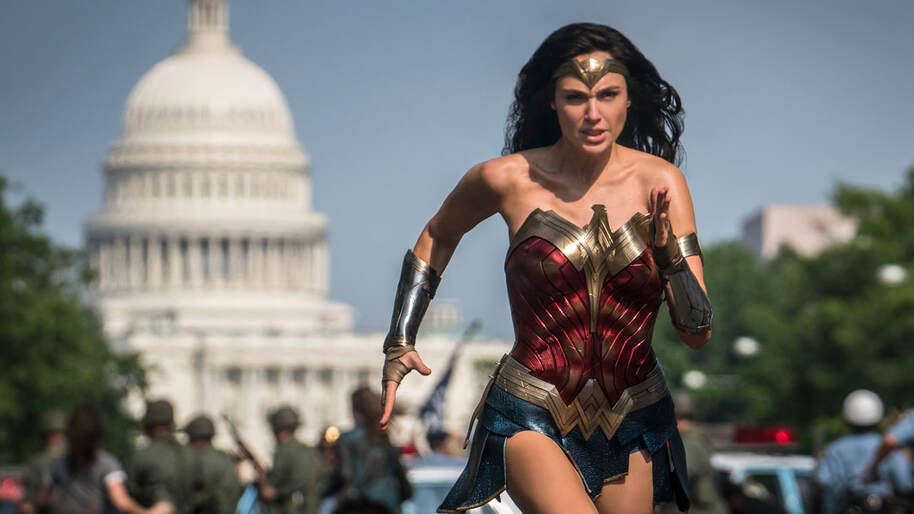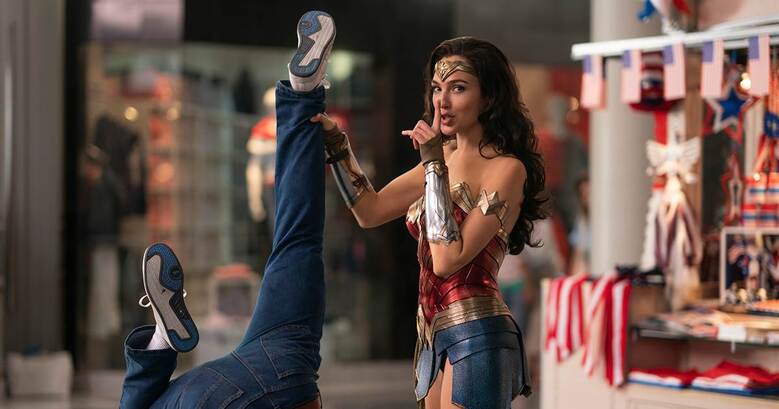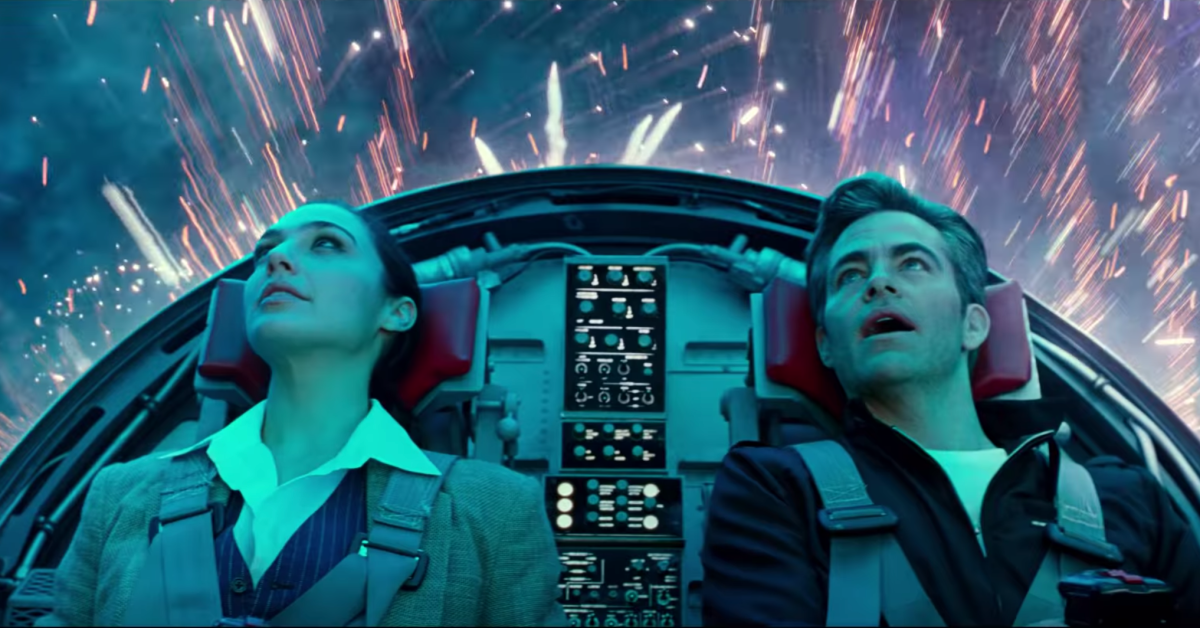|
MOVIE REVIEW
'Wonder Woman 1984' Is A Clunky Sequel
By Dan Dubon | January 4, 2021
This sequel had almost everything going for it. Its empathetic predecessor is likely the most beloved and critically successful of the slate of beleaguered DC Comics films. Its time-skipping story offered a way to expand the superhero genre’s usual plot beats — which was desperately needed — and arrived buoyed by an excellent cast. Perhaps its lopsided universe was not perfect; there were lackluster villains and a noticeable absence of racial diversity and sensuality, and the sequel had to contend with a significant jump from WWI-era Europe into early 1980s Washington, D.C. But these issues were surmountable. Sadly, all that glittered in the franchise’s first outing is gone in Wonder Woman 1984.
In Patty Jenkins’s candy-colored rendition of the ’80s, 1984’s Diana (Gal Gadot) finds herself lonely and isolated — both by choice and circumstance. As she begins to develop a friendship with a co-worker named Barbara Minerva (Kristen Wiig), Diana’s life as both a museum curator and undercover superhero is disrupted by the arrival of what is best described as a magic rock. At first, it unknowingly grants Diana her great desire: to see Steve Trevor (Chris Pine) returned to life (sort of). The easily frazzled and comically clumsy Barbara gets some fringe benefits, too — she wishes upon the rock to be like Diana, suddenly achieving a power and confidence beyond her wildest dreams. But things take a turn when wannabe oil tycoon Maxwell Lord (an over-the-top and preening Pedro Pascal) strolls into the story with a rank ego.
Sure, Gadot and Pine once again have a charming chemistry, but his character’s return from the dead — in which he, basically, takes over some poor guy’s body — sparks more questions about the gaps in logic. And then there’s their utter sexlessness, an especially damning reminder of the way this genre fails to take into account one of the most beautiful aspects of being human. Instead, in 1984, Diana’s non-erotic yearning for Steve has become the entirety of her identity. Why? She doesn’t miss her Amazon sisters, whom she can never see again, more? It’s been about 70 years and she still hasn’t moved on from Steve? There’s something deeply sad and predictable about a female superhero so tied to a single man she’s willing to lose her powers for him. Romance has the potential to be heartwarming and expansive in superhero stories, but here it just feels claustrophobic.
Jenkins, who brought a fresh eye to the fight choreography and stylings in the original Wonder Woman, seems now almost disenchanted with the world she’s helped bring to life. It’s cheerfully lit, as the ’80s period demands, but it’s neither visually intriguing nor beautiful. Wonder Woman 1984 overwhelms the senses, confusing larges with wonder. The action is hobbled by poor blocking; a strange spatial dynamic makes it so that you’re never exactly sure where characters are in the space of the scene.
The actors can’t save the story. Wiig really, really tries, too. She vamps it up with Pascal, each of them going for arch performances the script can’t match. The plot grows more tangled and confusing by the minute, as the film’s central relationships are overshadowed by unnecessary globetrotting, flashy role reversals, and poor world building (which mines the time setting for visual and sonic cues but little else. The story does nothing to explain exactly what Diana has been doing in the years since WWI or why she decided to ignore intervening global horrors she might have otherwise dismantled.) In the comics, Diana forms a curious bond with Barbara, whose work as an archaeologist and obsession with the Amazons adds an intriguing layer to their friendship. Little of that transfers to the film.
The sequel continues the franchise’s earnest streak, but without a stronger narrative it feels unearned and, worse yet, calculated. Gal Gadot admittedly remains a warm presence in the franchise, and Chris Pine does his best with the story. It makes sense that Steve and Diana would become positioned against Barbara and Maxwell, with his murkily defined goals of domination. But why not lean into the best aspect of the preceding story: the Amazons?
In the end, this isn’t good filmmaking and as more and more exciting directors get caught up in the gears of this mammoth genre, I can’t help but reflect on how their talents would be better utilized elsewhere. If only Hollywood gave them real control over stories, rather than treating their work as mere conduits for content the studio can replicate and sell. It’s a shame because the sequel had almost everything going for it. Maybe it’s a blessing in disguise that this film got released during a pandemic because if it released in theatres the box office growth might’ve been lower then the first film. Hopefully the DC Extended universe could get back on track with James Gunn’s The Suicide Squad hitting theatres and HBO Max later this year.
Grade: C-
What are your thoughts?
|
|



